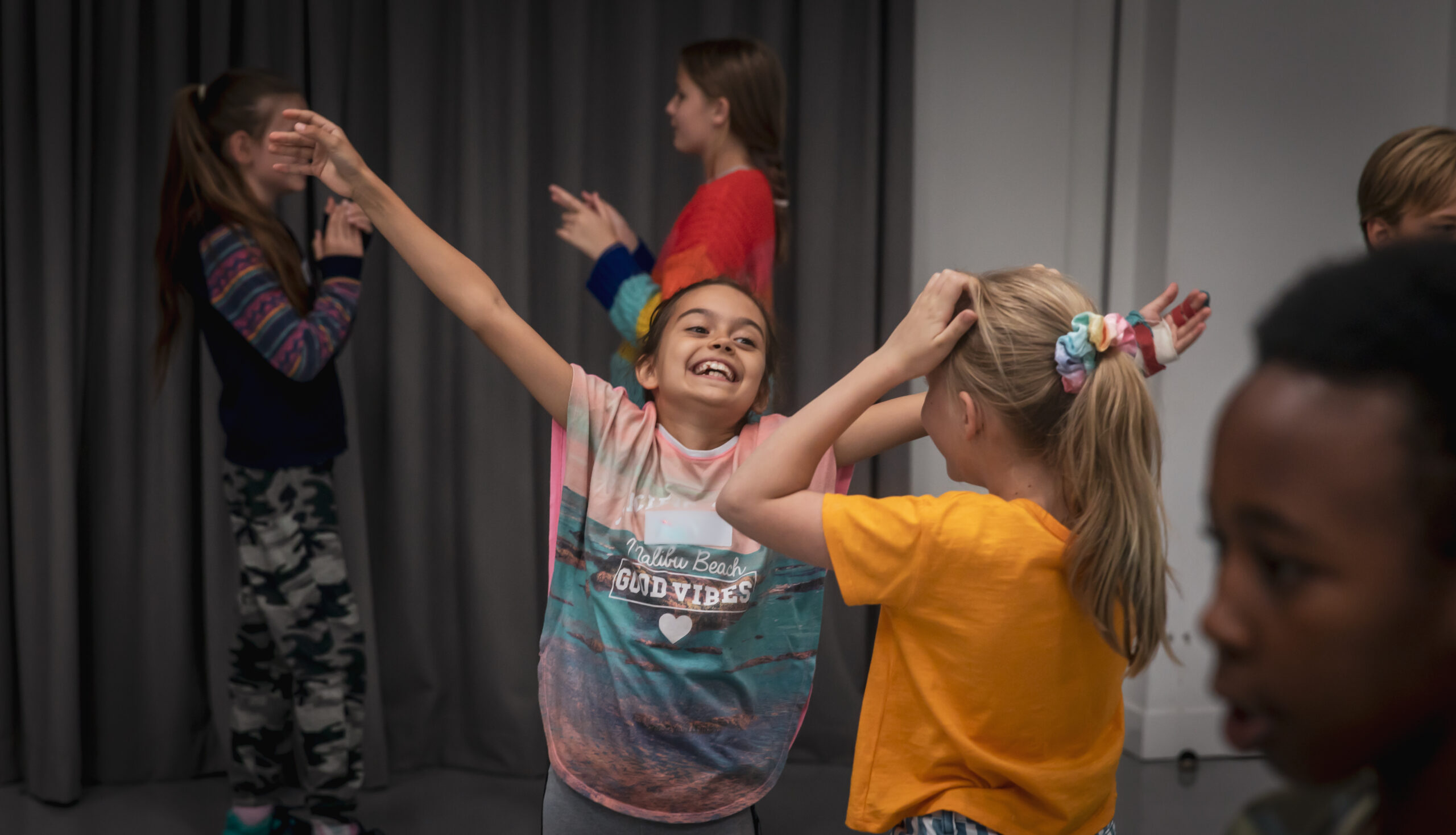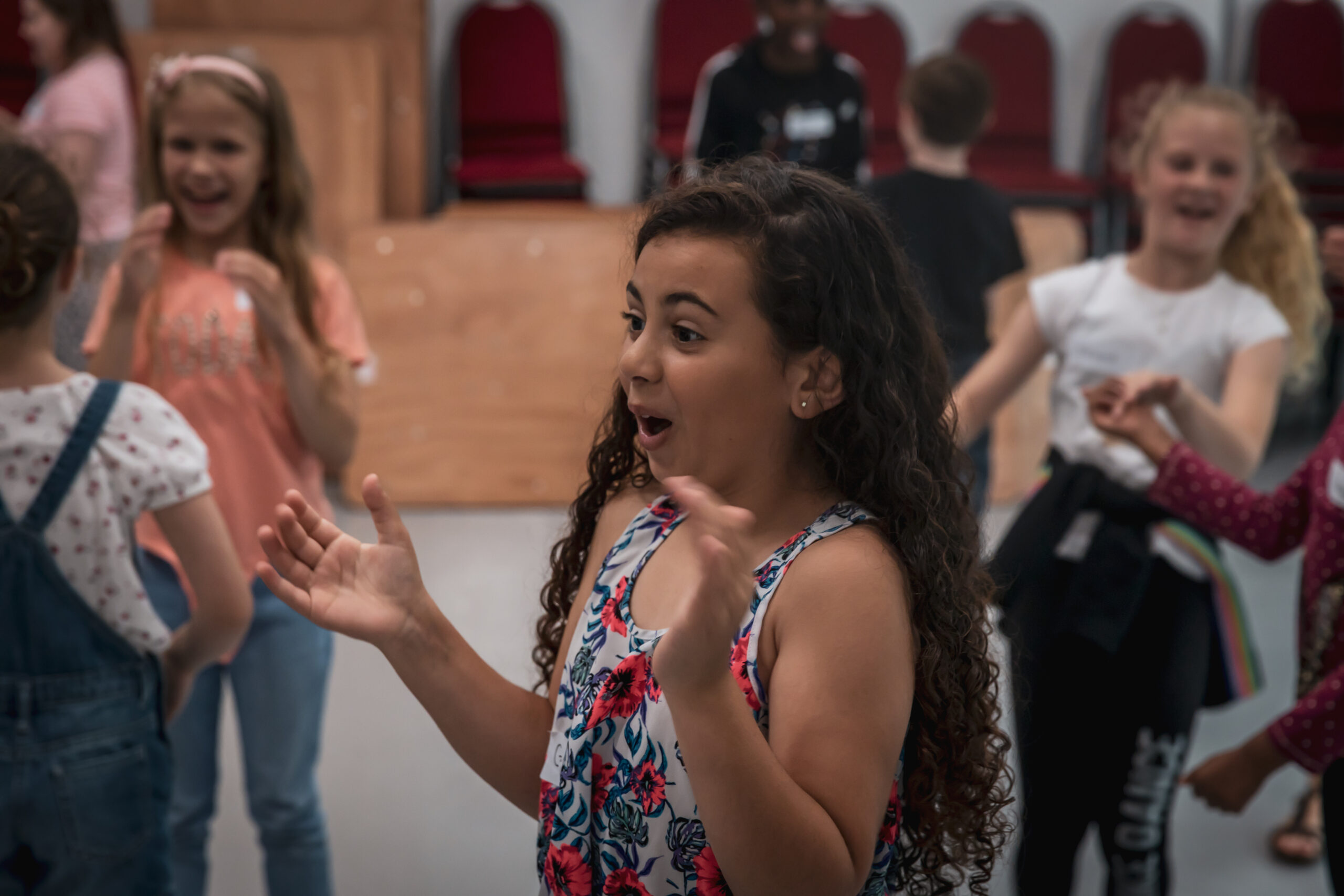Emma Stafford, the casting director of ‘4 O’Clock Club’, ‘Biff and Chip’ and ‘Pip and Posy’, shares her self-taping tips and what parents and young performers should know about the industry.
As a parent, I get that it may seem frustrating when you’re trying to understand the industry. You may sometimes wonder why you’re paying for headshots, drama classes and Spotlight when your child isn’t being ‘seen’, but there’s really no right or wrong answer. There’s just such a large volume of performers, so just know you’re doing everything right by supporting your child.
The parents of young performers have to juggle so much at once. I get it – as a single parent myself, I’ve always got lots going on: I’ll be cooking the tea, answering the phone, typing emails, thinking about the projects I’m working on, as well as looking after my son. So know that casting directors really are on your side and appreciate what you’re juggling – we’re in the same position!
Here are 11 things that young performers and their parents need to know about how the industry works and what you can do to increase your casting chances:
1. What to Include on Your Child’s Spotlight Profile
Young performers aren’t supposed to have incredibly full CVs. If you have the footage, that’s great – use it. You might not have the content for a showreel – that’s also fine. Don’t stress. The whole purpose of acting when you’re young is that it should be fun. It isn’t a prerequisite for young performers to have video footage on their profile – that comes with experience. As long as I can see your face, that’s really all that matters.
A good current headshot is the most relevant, which is tricky when kids are growing every day! My son looks completely different to a year ago, so that’s something I’m always looking for – are the photos on the profile representative of the performer now?
As a parent, when you feel quite out of control in this process, you can keep looking at that headshot and your child and make sure they’re correct. The other thing parents can keep an eye on is the essential information on the profile: playing age, height and skills. Playing age, height and photos are, without a doubt, the most important for me.
Skillswise, if your child is really good at netball, horse-riding or basketball, put it on their profile. We’re always searching for those physical skills. For my project, Hoops, I was looking for sporty kids who could be put with a basketball coach when cast, so having an updated profile with those skills is really helpful.
2. Handling Quieter Periods
It’s something I’m guilty of as a parent as well, but take your foot off the pressure pedal. Just a little bit! I fully understand the need to feel like you’re doing something to be seen and that can be frustrating as you’re pushing to this perceived ‘promised land’ of a role in a TV drama or a West End show.
You’ll often find that the more lived experience young performers get as they grow, the right things will come to them. It’s what I’ve found in my career. I have to go out in the world and get work in the same way as actors do. Put some space around the stress of not being constantly asked for self-tapes and auditions.
3. Emma’s Casting Process for Young Performers
When we’re casting young performers, we see people with zero credits; we see people with lots of credits. That’s the job of the casting directors. For example, one of my recent projects, Hoops, is a complete mix of experience across the lead roles. I work with agents that I already know and have great working relationships with, as well as getting to work with agents I’ve never met before or people who don’t have agents. Our job is to work with the whole smorgasbord of available talent.
I don’t just go to the ‘top’ agents. I really leave no stone unturned when it comes to finding the right person for the right role. I recently re-briefed a role for a film eight times to get the right person and the last boy who came into the room was the one we ended up casting. Sometimes, that’s the way it goes!
4. Casting by Location
Sometimes location is absolutely a factor, especially when it comes to day-player roles. Production budgets are often limited for those roles. For those smaller parts, there might not be a budget for travel and overnight accommodation, so that’s when we’ll look at performers based in the production location and cast locally. It also means we’re working with actors from that local community, so there’s a level of authenticity.
5. Casting by Appearance
Sometimes, the appearance is really set in stone by the story of the project, e.g. the heritage of the parents who’ve been cast already. There are occasionally really clear parameters that mean a performer needs to look a certain way.
However, sometimes it’s the complete opposite and there are no restrictions on appearance, so it’s just about the actor. For me, that’s much more exciting, but it’s not always possible and is entirely script dependent.
6. Neurodiversity and Auditions
It’s something very close to my own heart and I’m really hot on it for my auditions. We, as casting directors, want to make sure any access requirements are met (e.g. different coloured paper for scripts).
The best advice I can give is to use your voice. If you have additional needs, how can we support you? Especially if there’s anything triggering, such as bright lights or being overwhelmed by groups of people.
You can also say to your agent you’d prefer to audition at the beginning or the end of the day if it’s a bit quieter and that you want to avoid the lunchtime period. You could also ask to meet the team on Zoom first or perhaps ask for additional notes.
All the casting directors I know would say the same, but it’s important to be open and honest about your needs. We’re here to support you!
7. Learning Lines for Self-Tapes and Auditions
What makes what I do so fascinating is that each of you will bring something different to the character. Do your best to get the words in the script right. My advice is to get into the habit of prepping the scripts and don’t purposely add in any additional lines unless the instructions from your agent and the casting director allow for this. That said, I’m not a teacher; I’m not here to test you. If you don’t get the words 100% as written, that’s okay!
Try and get off-script for every audition, as it’ll help you be in the moment and we won’t see you thinking about the next line. It’s about inhabiting the moment and reacting to the scene as if it’s your first time hearing the lines – that’s what brilliant actors are able to do. For in-person auditions, you really need to be off-script.
For me, what’s important is that you’re getting the emotions of the character correct. You need to interpret the words and bring yourself to it.
8. Dealing with Nerves
One of my mantras and something I often say is, “Just breathe and believe.”
When we’re tense, we hold ourselves rigidly and hunch in. If you just breathe and talk on that out-breath, you’ll feel calmer than when you talk on an in-breath, which might make you talk quickly and sound panicked. That ‘breathe and believe’ mantra will help you feel a little bit more grounded.
9. The Benefits of Self-Taping
Self-tapes have really helped increase the variety of performers we can see. It means performers don’t have to travel to castings and we’re being mindful of the cost of travel and eliminating unnecessary environmental impact. It’s made my life easier as I don’t have to travel back and forth from Bolton to London all the time.
We can see more people as we don’t have to schedule in time slots. I’ve found that if I do a round of self-tapes and follow that up with a round of in-room auditions, we’re getting better in-person auditions because once you’ve done the tape and been given a recall, there’s a degree of confidence in the work you’ve already done. Actors get more from being in the room as we can help with nerves or content in the scripts.
I do love self-tapes as it helps me to see you on screen, which is ultimately what I’m casting for. Once I’ve seen the tapes, I’m excited to get performers in the room.
10. Emma Stafford’s Self-Tape Tips
- Position yourself in the frame properly – I just need to see your head and shoulders.
- Hearing and seeing you is the most important thing, so make sure that’s clear!
- Try to find a plain wall to film in front of and avoid distractions, such as trailing leads. Or just hang a bed sheet against a wall. There are so many cheap (and free) ways to make a good self-tape.
- Make sure you’re filming in landscape, not portrait!
- Remember to have fun! Don’t keep doing self-tapes again and again because of tiny errors. Some of the most interesting tapes I watch aren’t perfect. Just do the tape twice and send your favourite one. Do the tape and then go have a hot chocolate or play outside in the fresh air.
11. What Happens if You Don’t Get the Role?
When you get asked to self-tape or come to an audition as a young performer, take that as a win. The positives aren’t just getting the role – there are learning opportunities at each stage, even if the outcome isn’t what you wanted.
It happens to me, too. I had a meeting for a job I desperately wanted to cast and they went with someone else. That’s just life! I’ve found that there’s usually a reason and when I look back at that experience, I can see clear and present reasons why I might not have been right at that particular moment in time.
One of the greatest skills we have as casting directors is that we remember you. If you don’t get the role you’ve come in for, we still have you in mind. We keep your tapes and our detailed notes in our spreadsheets on file and, if we have permission to keep your tape, later on, we’ll often have conversations in our office and say, “Do you remember that performer who taped for us?” and we can quickly recall your tape and bring you in for our next project.
Someone said to me years ago that casting directors are like elephants – they never forget, and that’s true! We champion you.
Thank you, Emma, for sharing your insights and advice with us!
Take a look at our website for more acting tips for young performers and industry advice for parents, including:



















